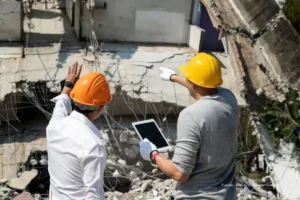Good Manufacturing Practices in the food industry: how they are certified to avoid penalties

Zuleima Vega Mendoza
Abogada de la Universidad Católica de Colombia, actualmente se desempeña como Coordinadora del departamento de consumo y competencia en Muñoz Abogados.
Any company that manufactures food and beverages must be registered with the National Institute for Drug and Food Surveillance (Invima) and must have the respective sanitary concept that endorses it in order to be able to carry out its work.
In addition, it must ensure that all those involved in the production, processing, and distribution of food and beverages comply with hygiene and handling requirements. The purpose of this is to mitigate existing risks when acquiring a food product.
You may be interested in: Manufacturing exports, a pending task in the integration of Latin America
In theory, it is clear for producers and distributors of food and beverages that they must have “Good Manufacturing Practices”. However, in practice, it has been evidenced that it is not a concept that is handled properly, which leads to the Invima imposing different sanctions.
What are Good Manufacturing Practices?
Good Manufacturing Practices (GMP, BPM in Spanish) are those basic principles of hygiene and general rules that must be followed at all stages, from processing to distribution of food and beverages for human consumption. These have been created with the purpose of guaranteeing the consumer that the product he/she acquires complies with minimum safety and quality standards.
However, it is important to keep in mind that these principles should not remain only on paper. That is why Invima is the entity in charge of issuing the certification of Good Manufacturing Practices, which is necessary when requesting a sanitary registration of food and/or beverages.
What requirements must I meet to obtain a Good Manufacturing Practices certification?
In order to obtain the GMP certification, the applicant must, among other procedures, be duly registered before the Registro Único Empresarial y Social (RUES), fill out the application form enabled by Invima, and pay an official fee before this entity, which must be consulted before the entity at the time of the procedure, since these fees may be modified at any time.
Once the application has been filed and within a reasonable period of time, Invima will set a date for the inspection visit, in which it will verify that the applicant company complies with the technical requirements.
Among these requirements are that the facility be located away from sources of contamination, that it have good lighting and ventilation, that the areas be made of resistant materials that are easy to clean, and that they are equipped with the necessary elements for hygiene.
Read also: Thousands of MSMEs in Colombia remain afloat in the face of strong economic tensions
Regarding the workers, the facility must manage hygiene protocols among the personnel, who must have the necessary clothing for the job. It must also have a sanitation plan and duly documented procedures.
What happens after the Invima visit?
Once the visit is completed, Invima will issue its sanitary concept, in which it may conclude that the establishment COMPLIES, NOT COMPLIANT or COMPLIANT CONDITIONED.
In cases where the conclusion is COMPLIANT CONDITIONED, the findings will be recorded and a reasonable period of time will be granted for the establishment to adopt the corresponding measures.
If the findings of the visit impact the operation and the concept is a NOT COMPLIANT, the Invima may adopt sanitary measures and the respective sanctions.
What sanctions can Invima impose?
Within its powers, Invima may impose warnings, and fines, confiscate products, suspend or cancel the license of a company and even order the sealing of the establishment temporarily or permanently.
This will depend on the seriousness of the infraction. Clearly, these conclusions will be reached once the due process is carried out, so it is of vital importance to be steeped in the regulations governing our economic activity and comply with the requirements established by law to avoid any type of penalty.
Good Manufacturing Practices are not just about having a food handling license, as some might believe. They consist of complying with a series of technical guidelines that allow food and beverages that are taken to the consumer to meet the health and quality standards established by the authorities.
For this reason, it is important to always have the appropriate advice to avoid possible closures of establishments and in some cases the cancellation or suspension of sanitary registrations.
MinComercio launched the Seal and Ranking of Payment in Fair Terms: this is how your company can apply and gain the recognition of suppliers and customers





